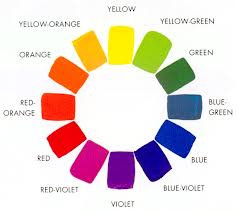Why do my eyes burn?
Why one would want to squeeze said fat guy into a a tomato can is irrelevant and pointless. But a task such as this at times seems impossible: fat guys do not belong in cans of tomatoes. But after huffing and puffing, cajoling and begging, you eventually realize you are stupid for trying to get a 300 pound man into a can that is only 8 ounces.
And then you get a bigger can.
That might just do it!
For the last, oh I dunno, year or two I have been focusing almost entirely on miniatures. That is to say, paintings under 8" x10". Make no mistake I adore, simply adore painting small. In fact 8" x 10" seems like a hugely unfathomable space when I think that most of my recent work has easily been half that size.
It really amazing how ingrained you get to working in a particular way or particular style. When I was working at Mission: Renaissance I don't think I fully comprehended how my concept of a still life was tied to three the, "3 objects on a medium value cloth (or dark value if you're feeling adventurous)" aesthetic.
Once I began working on my own it seemed all I could produce was some sort of variation on that theme. I completed maybe 8-10 paintings before I realized that I was simply painting the same painting over and over. The only difference between them was perhaps a different color or two maybe different objects. In short I was bored.
So I sat down and began to look at my painting methods.
1. I had always used an open pallette, with secondary colors mixed from primaries.
Once I started to push my boundaries in subject matter I actually found my mixing habits to be a handicap. Being that I wanted to get a way from my previous idea of "still-life" I began to heavily restrict my use of color and get a tighter control on my light. I found that my previous method of mixing colors (by mixing two or more color's together to get a general hue and then mixing a compliment to get a proper chroma) using my brush, resulted is slight variations within the local.
For those of you who don't speak painter.
Instead of getting this:
If you blow your nose and you see this you're
probably sick
I got this:
If you see this, you're probably dead
and turning into a zombie
Your basic run-of-the-mill
color wheel of death
The more I attempted to push for a precise communication of color I needed a way of thinking about color, value and intensity in a way that was more descriptive. In short I needed to expand my color vocabulary.
I started experimenting with a "closed palette" that is to say I began mixing strings of colors using pre-tubed neutrals on a scale of 1-10.
Why do I taste paint?
When I wanted to mix for a particular area I would first mix for the color and then add an amount of grey to whatever value I needed. So instead of thinking about red as I did above, I began thinking about it like so:
I think the red square is just about right.
In short, color went from a wheel, to a three directional globe ascending in value and growing in chroma as it moves out from the center:
Looks delicious doesn't it?
Occasionally the problem you are facing requires that you re-evaluate the tools you are using. in this case the problem of painting (fat guy in leotard, see above) requires a re-evaluation of the tools at hand (can of tomatoes, see above).
Tools are only tools because they are useful. If they are not, all your left with is a fat guy standing on a can of squashed tomatoes.
The picture of the fat guy in tomato sauce
was too horrible to include. So here is a baby
in tomato sauce to make up for the leotard picture earlier.
Your welcome.
-G



















